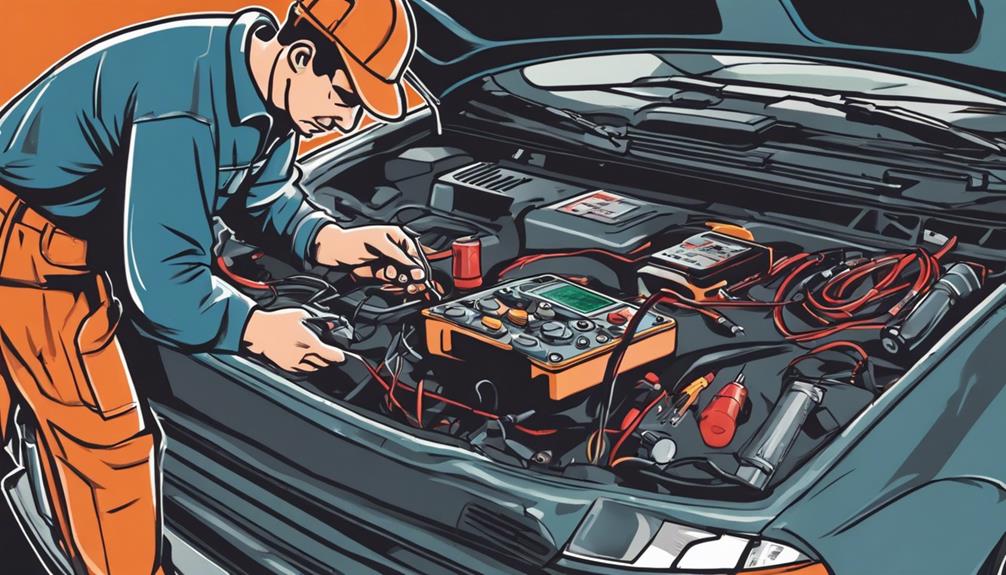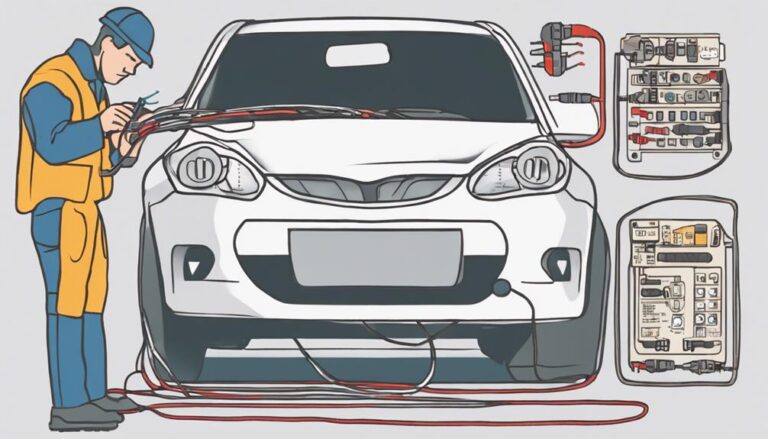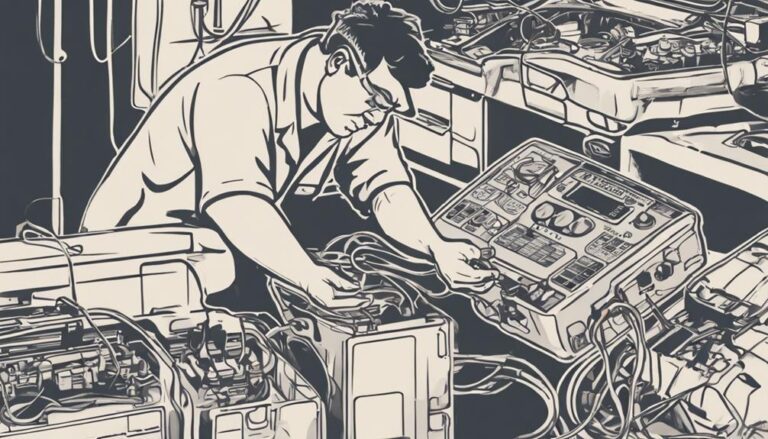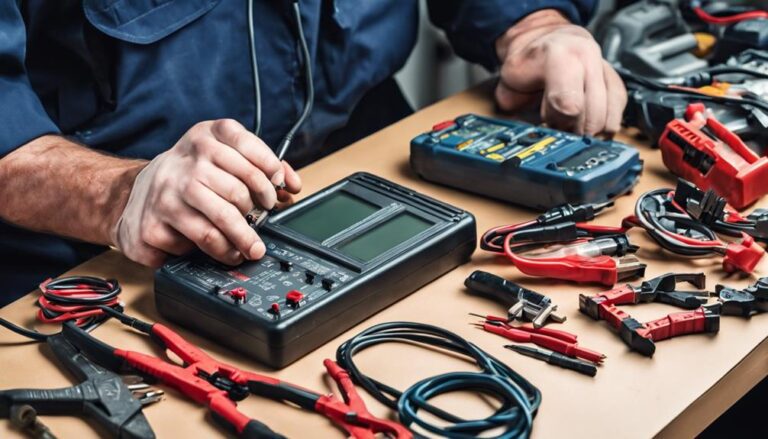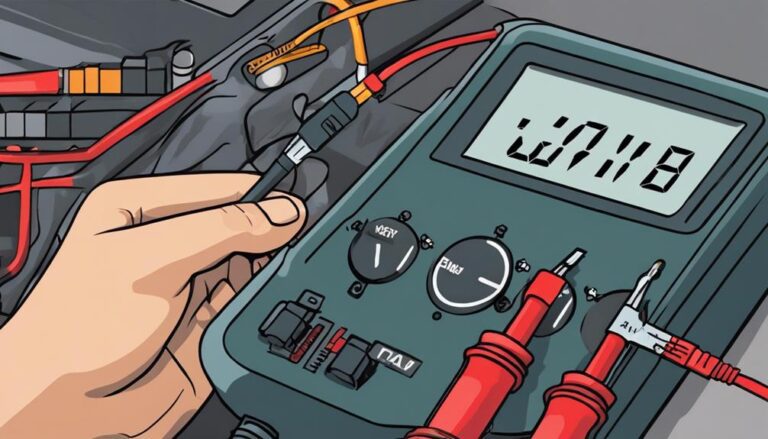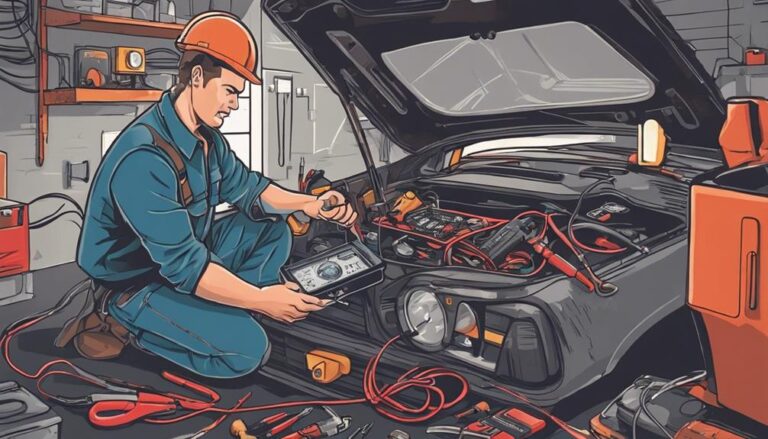Effective Solutions for Car Electrical Issues
If you've ever found yourself stranded due to a car electrical issue, you know how frustrating it can be. From mysterious warning lights to sudden battery failures, the complexity of modern vehicle systems can be overwhelming.
However, fear not, as there are practical solutions to tackle these challenges and keep you on the road. By exploring diagnostic techniques, maintenance tips, and troubleshooting strategies, you can enhance your understanding of car electrical issues and empower yourself to handle them effectively.
Stay tuned to discover the keys to resolving common problems and ensuring your vehicle operates smoothly.
Key Takeaways
- Regularly inspect and maintain car battery terminals for optimal performance.
- Monitor alternator signs like dimming lights and conduct voltage tests for functionality.
- Address starter motor issues promptly to avoid engine starting failures.
- Manage spark plug condition and ignition timing for improved engine efficiency.
Common Car Battery Issues
When encountering common car battery issues, diagnosing the problem accurately is essential for effective troubleshooting. Begin by inspecting the battery terminals for any signs of corrosion or loose connections. Use a battery terminal cleaner to remove any buildup, ensuring a secure and efficient electrical connection. Proper maintenance of these terminals is crucial for the overall health of your car's electrical system.
Charging techniques play a significant role in extending the lifespan of your car battery. Utilize a smart battery charger to maintain the battery's optimal charge levels and prevent overcharging. Regularly charging the battery after extended use or inactivity helps keep it in good condition. Additionally, testing the battery's voltage levels with a multimeter provides valuable insights into its health and performance. By monitoring these levels and ensuring the battery is adequately charged, you can prevent unexpected breakdowns and maintain your vehicle's reliability.
Alternator Troubleshooting
To effectively troubleshoot alternator issues, meticulously inspecting for dimming headlights, dashboard warning lights, and engine noises is crucial. Dimming headlights or flickering dashboard lights could indicate a problem with the alternator not supplying enough power to the electrical components. Conducting voltage testing with a multimeter is essential to determine if the alternator is producing the correct voltage output, typically between 13.5-14.5 volts when the engine is running. Signs of a failing alternator may include a dead battery, power loss during driving, or malfunctions in the electrical system.
Regular belt maintenance is also paramount, as worn drive belts can lead to alternator issues and impact battery charging. Performing a charging system test can help identify alternator problems early on, preventing further electrical issues in your vehicle. By staying proactive with inspections and testing, you can ensure your alternator functions properly and avoids potential breakdowns on the road.
Starter Motor Problems
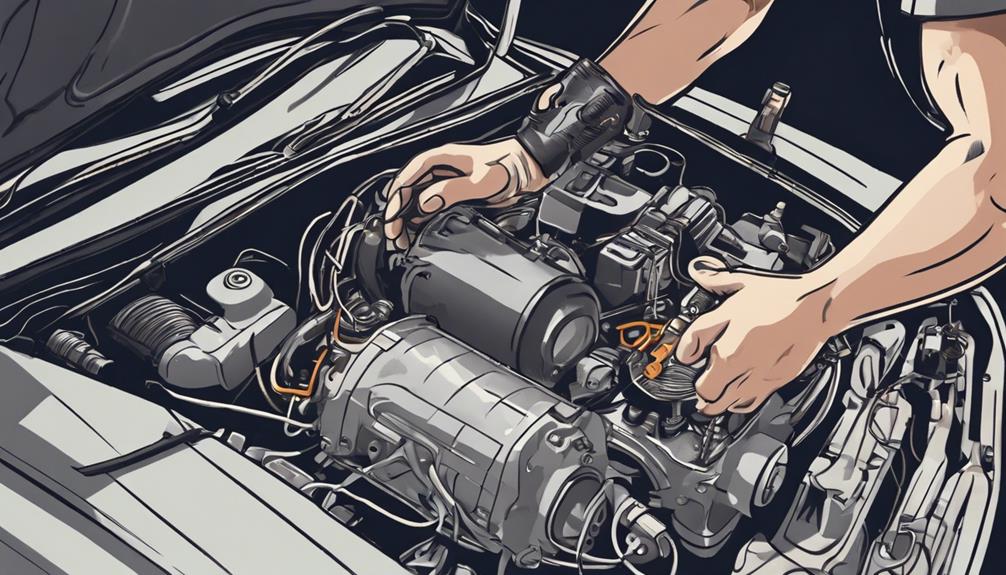
Inspecting the starter motor is crucial when troubleshooting car electrical issues, especially if you've noticed dimming headlights or flickering dashboard lights indicative of potential alternator problems. Here are some essential points to consider:
- Function of Starter Motor: The starter motor plays a vital role in the ignition system by turning the engine to start the vehicle.
- Signs of Faulty Starter Motor: Be alert for clicking noises when attempting to start the engine and the engine failing to crank, as these are common indicators of starter motor problems.
- Maintenance and Repair: Proper maintenance involves regular cleaning and lubrication of connections to ensure the starter motor operates efficiently. If the starter motor fails, prompt repair or replacement is necessary to avoid being stranded.
Fuse Box Solutions
Regularly checking and replacing blown fuses in your vehicle's fuse box is essential for maintaining proper electrical functionality. Fuse box maintenance is a key aspect of troubleshooting electrical issues in your car.
To begin, carefully inspect the fuse box for any signs of blown fuses, such as a broken filament or a discolored appearance. When identifying blown fuses, make sure to use a multimeter to verify their functionality.
Once a blown fuse is confirmed, carefully remove it using fuse pullers to avoid damaging the surrounding fuses or components. When replacing a fuse, ensure you use the correct amperage rating to prevent electrical overload and maintain safety standards.
Understanding the role of fuses in protecting electrical components is crucial for efficient troubleshooting. By regularly inspecting and replacing blown fuses, you can prevent future electrical problems and ensure the smooth operation of your vehicle's electrical systems.
Spark Plug Maintenance
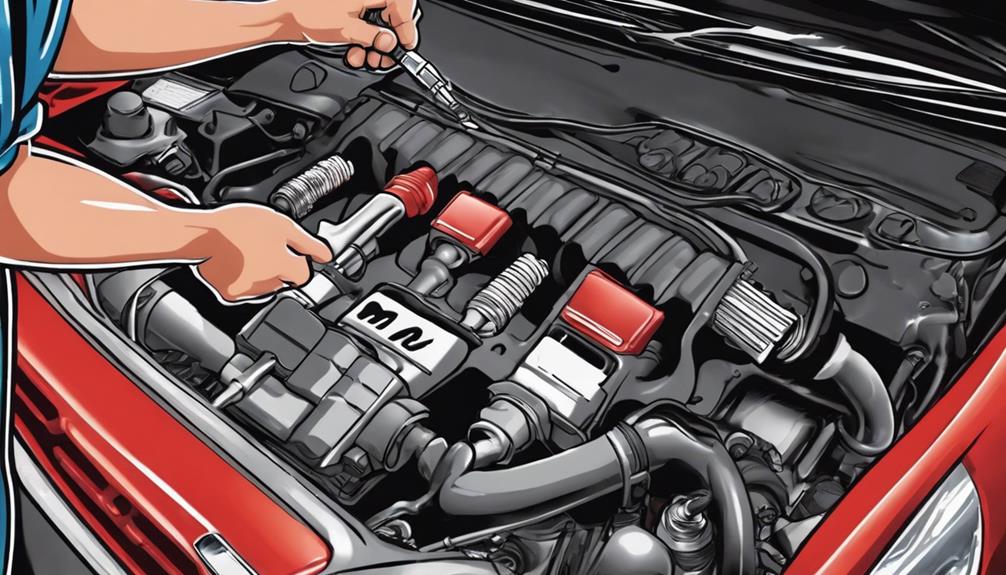
Are you aware of the critical role spark plugs play in igniting the air-fuel mixture within your engine cylinders? Proper spark plug maintenance is crucial for your vehicle's performance. Here's what you need to know:
- Spark Plug Gap: The distance between the center and ground electrode tips affects the spark's ability to ignite the air-fuel mixture. A correct gap ensures optimal combustion efficiency.
- Ignition Timing: The spark plug fires at a specific point in the engine's cycle, known as ignition timing. Incorrect timing can lead to engine knocking, decreased power, and poor fuel efficiency. Regularly checking and adjusting ignition timing is vital for engine health.
- Regular Inspection and Replacement: Fouled or worn spark plugs can cause misfires, rough idling, and decreased acceleration. By inspecting and replacing spark plugs at recommended intervals, you can maintain engine performance and fuel efficiency. Upgrading to high-quality spark plugs can further enhance your engine's power and overall performance. Remember, following manufacturer guidelines for spark plug maintenance is key to keeping your engine running smoothly.
Frequently Asked Questions
What to Do if Your Car Is Having Electrical Problems?
If your car is having electrical problems, start by performing diagnostic testing and troubleshooting. Prioritize preventive maintenance like checking the battery voltage and cleaning terminals. Seek professional help if DIY solutions don't work.
What Is the Most Common Cause of Electrical Problems in Cars?
When your car's electrical system fails, the most common culprit is often a weak or dead battery. Faulty connections and wiring issues can also lead to car troubles. Regular checks and maintenance can help avoid these headaches.
Are Electrical Problems in Cars Expensive to Fix?
Fixing electrical problems in cars can vary in cost. While some issues like dead batteries or blown fuses have affordable solutions, more complex problems such as faulty alternators can be pricier. DIY troubleshooting can be cost-effective for minor issues.
What Are the 10 Common Electrical Problems and Solutions?
When dealing with car electrical issues, troubleshoot by checking battery, alternator, starter motor, fuse box, and spark plugs. Perform preventive maintenance like regular battery checks and spark plug replacements to prevent common problems and ensure smooth vehicle operation.
Conclusion
To ensure your car's electrical system runs smoothly, always investigate the root cause of any issues and implement targeted fixes promptly.
Regular maintenance and proper care can prevent common problems like dead batteries, faulty alternators, and bad spark plugs.
By staying proactive and seeking professional help when needed, you can keep your vehicle in top condition and avoid costly repairs down the road.
Remember, a well-maintained electrical system is key to a safe and reliable driving experience.

